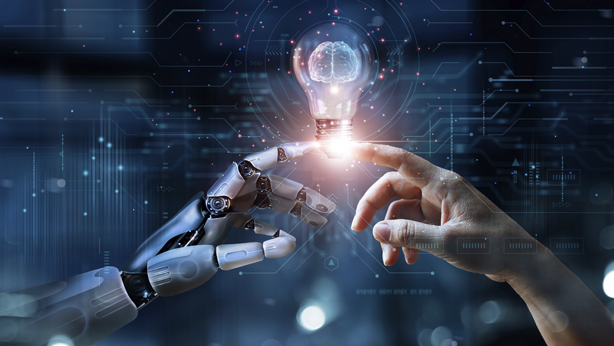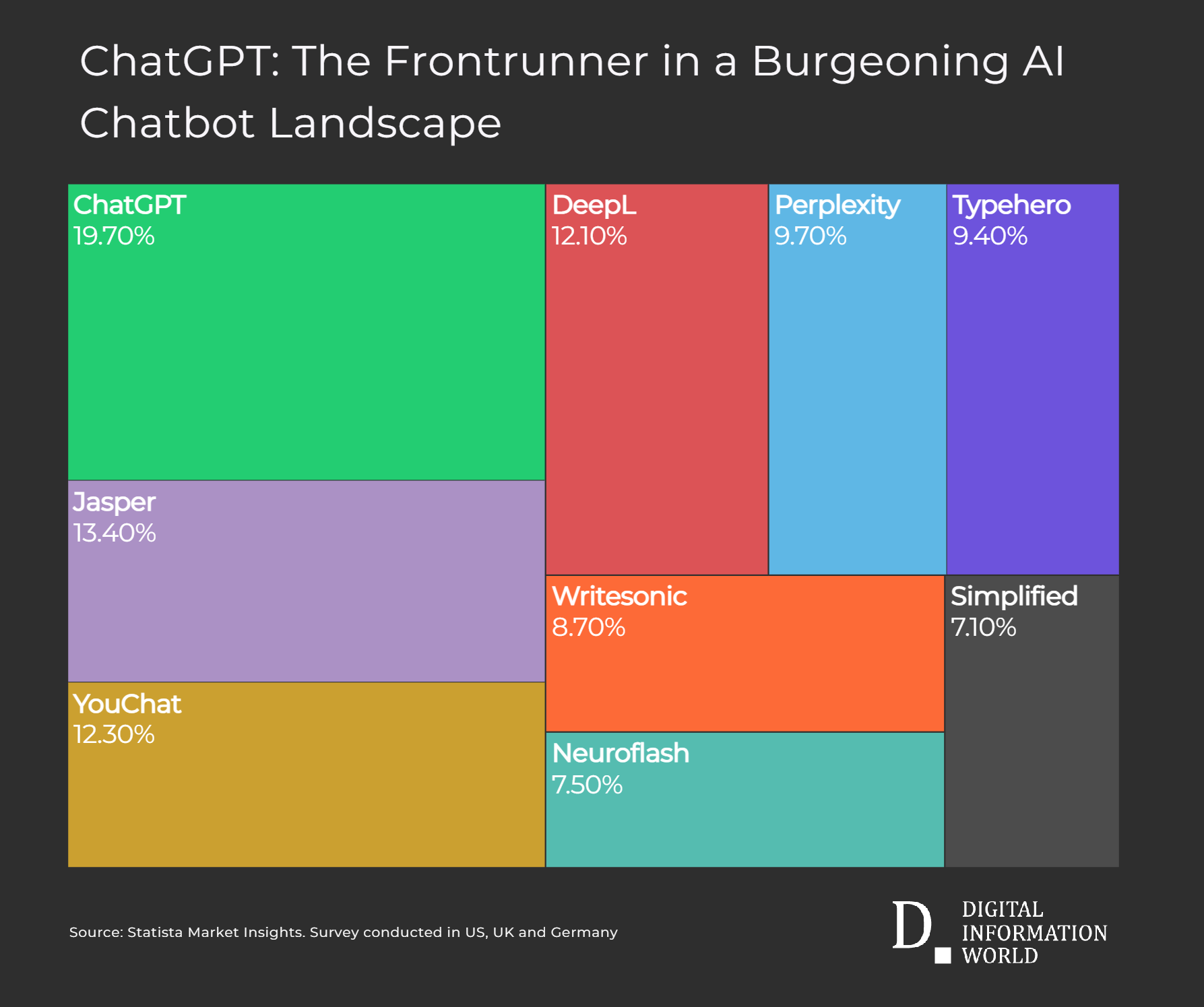The Transformative Power of AI
In the dynamic landscape of technology, Artificial Intelligence (AI) stands as a beacon of innovation, reshaping industries and revolutionizing the way we live and work. From its humble beginnings to its current state of unprecedented advancement, AI is at the forefront of transformative change.
Defining AI
AI is a field of computer science dedicated to creating systems that can perform tasks requiring human intelligence. These tasks encompass a wide range, from problem-solving and learning to speech recognition and decision-making.

Evolution of AI
The evolution of AI has been remarkable, progressing from rule-based systems to machine learning and deep learning. Today, AI applications permeate various sectors, promising efficiency, insight, and a smarter future.
Revolutionizing Industries with AI Solutions
AI in Healthcare
One of the most significant contributions of AI is evident in healthcare. Through predictive analytics, diagnostics, and personalized medicine, AI is revolutionizing patient care. From early disease detection to treatment personalization, AI is a transformative force in the medical field.
AI in Finance
In the financial sector, AI plays a pivotal role in optimizing operations. From fraud detection algorithms to algorithmic trading, AI enhances efficiency and decision-making. Customer service is also evolving with AI-driven chatbots providing instant support.
Enhancing Efficiency through AI Integration
Automation and Productivity
AI-driven automation is a game-changer for industries seeking efficiency. Tasks that once demanded extensive manual effort are now streamlined through automation, allowing human resources to focus on higher-value responsibilities.
Data Analysis and Decision-making
The power of AI lies in its ability to analyze vast datasets swiftly. Whether in business, finance, or research, AI-driven data analysis provides valuable insights, facilitating informed and data-driven decision-making processes.
Shaping a Smarter Future with AI Innovations
AI in Education
The impact of AI extends to education, where personalized learning experiences and intelligent tutoring systems are transforming how students learn. AI’s ability to adapt to individual learning styles enhances the educational journey.
Smart Cities
AI is a key player in the development of smart cities. Through data analytics and the Internet of Things (IoT), AI optimizes city infrastructure, energy consumption, and public services, contributing to sustainability and efficiency.
AI’s Impact on Job Landscape and Skills
Job Evolution
As industries integrate AI, the job landscape evolves. While some traditional roles may shift, AI creates new opportunities. Embracing AI in the workforce requires adaptability, as automation takes over routine tasks, allowing humans to focus on tasks that require creativity and critical thinking.
Skills for the AI Era
Navigating the AI era necessitates a skill set aligned with technological advancements. Skills such as adaptability, critical thinking, and proficiency in working alongside AI systems become increasingly valuable. Continuous learning and upskilling are essential for staying relevant.
AI Ethics and Responsible AI Practices
Ethical Considerations
As AI becomes more pervasive, ethical considerations come to the forefront. Issues of bias in algorithms, privacy concerns, and transparency in decision-making demand careful attention. Establishing ethical frameworks ensures the responsible use of AI technologies.
Responsible AI Implementation
Responsible AI practices encompass fairness, accountability, and addressing societal impact. Companies deploying AI must consider the wider implications of their technologies, aiming for a positive and inclusive impact on society.
Overcoming Challenges in AI Adoption
Barriers to Adoption
While the benefits of AI are evident, barriers to adoption persist. These may include the initial cost of implementation, a lack of understanding of AI capabilities, and potential resistance from employees. Addressing these challenges is crucial for successful AI integration.
Addressing Concerns
To overcome concerns related to AI, clear communication and education are vital. Explaining the advantages, dispelling myths, and providing evidence of successful AI implementations can build confidence and facilitate a smoother adoption process.
AI and Personalization in User Experience
Elevating User Experience
The marriage of AI and user experience heralds a new era. AI personalization tailors experiences based on user behavior, preferences, and history. From content recommendations to adaptive interfaces, AI enriches user interactions across various digital platforms.
AI in E-commerce
In the realm of e-commerce, AI is a game-changer. Personalized shopping experiences, dynamic pricing strategies, and efficient supply chain management powered by AI redefine the landscape. As AI continues to evolve, the online shopping journey becomes more intuitive and tailored to individual needs.
Future Trends in AI Technology
AI and Quantum Computing
The convergence of AI and quantum computing is an exciting frontier. Quantum computing’s ability to process vast amounts of data simultaneously complements AI’s capabilities, opening avenues for solving complex problems that were once insurmountable.
AI and Augmented Reality (AR)
The synergy between AI and Augmented Reality (AR) enhances immersive experiences. AI algorithms enrich AR applications, providing real-time insights and personalization. From gaming to industry applications, this collaboration shapes the future of interactive experiences.
Frequently Asked Questions (FAQs) About the Benefits of AI
1. What are the primary benefits of implementing AI in businesses?
Answer: AI enhances efficiency by automating tasks, improves decision-making through data analysis, and contributes to innovation, giving businesses a competitive edge.
2. How does AI impact job roles, and what skills are essential in the AI era?
Answer: AI evolution transforms job roles, emphasizing skills like adaptability, critical thinking, and proficiency in collaboration with AI systems.
3. What ethical considerations should be taken into account when deploying AI technologies?
Answer: Ethical considerations include addressing bias in algorithms, ensuring privacy, and maintaining transparency in AI decision-making processes.
4. What barriers hinder the adoption of AI, and how can they be overcome?
Answer: Barriers to adoption include initial costs, lack of understanding, and employee resistance. Overcoming challenges requires clear communication and education.
5. How does AI personalize user experiences in various digital platforms?
Answer: AI tailors user experiences based on behavior and preferences, offering personalized content recommendations and adaptive interfaces.
6. What role does AI play in the e-commerce landscape?
Answer: AI revolutionizes e-commerce with personalized shopping experiences, dynamic pricing strategies, and efficient supply chain management.
7. What future trends can be expected in AI technology?
Answer: Future trends include the convergence of AI with quantum computing, enabling the processing of vast amounts of data, and collaborations with augmented reality for immersive experiences.
8. How does responsible AI implementation address societal concerns?
Answer: Responsible AI practices, including fairness, accountability, and societal impact assessment, ensure the ethical deployment of AI technologies.
9. In what ways does AI enhance education and personalized learning experiences?
Answer: AI in education offers personalized learning journeys and intelligent tutoring systems, catering to individual learning styles.
10. What is the significance of AI in shaping smart cities?
Answer: AI optimizes smart cities by analyzing data and enhancing infrastructure, energy consumption, and public services for sustainability and efficiency.
Conclusion:
In conclusion, the profound benefit of AI extends far beyond its technical capabilities. It is a catalyst for change, propelling us into a future where efficiency, personalization, and innovation are the norm. Embracing AI is not just about adopting a technology; it’s about embracing a mindset that values adaptability and continuous learning.




